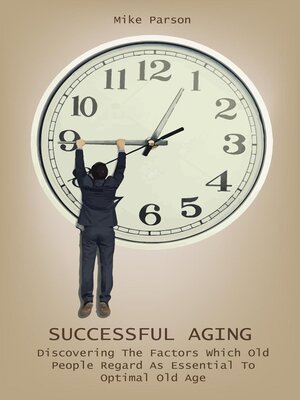Successful Aging Discovering the Factors Which Old People Regard As Essential to Optimal Old Age
ebook
By Mike Parson

Sign up to save your library
With an OverDrive account, you can save your favorite libraries for at-a-glance information about availability. Find out more about OverDrive accounts.
Find this title in Libby, the library reading app by OverDrive.



Search for a digital library with this title
Title found at these libraries:
| Library Name | Distance |
|---|---|
| Loading... |
The substantial increases in life expectancy at birth achieved over the previous century, combined with medical advances, escalating health and social care costs, and higher expectations for older age, have led to international interest in how to promote a healthier old age and how to age "successfully." Changing patterns of illness in old age, with morbidity being compressed into fewer years and effective interventions to reduce disability and health risks in later life, make the goal of aging successfully more realistic.
Most health care provided in the developed world goes to those aged 65 years or above. The medical model is so dominant that few health professionals are aware of psychosocial aging. The result focuses on the burden of old age, the decline, and the body's failure. This negative perspective inevitably dominates consultations between doctors and patients. However, there is ample evidence that many elderly people regard themselves as happy and well, even in the presence of disease or disability.







